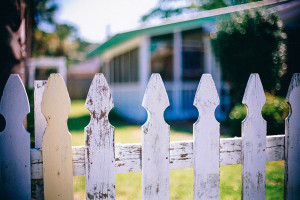 Are you the type of person that strives to be that responsible pet owner, who scoops their yard daily, but then ends up tossing the poop over the fence or under a nearby bush? Well, you’re not alone. Many dog owners, without having enough knowledge about dog poop, will do the exact same thing and think nothing of it.
Are you the type of person that strives to be that responsible pet owner, who scoops their yard daily, but then ends up tossing the poop over the fence or under a nearby bush? Well, you’re not alone. Many dog owners, without having enough knowledge about dog poop, will do the exact same thing and think nothing of it.
It can be pretty easy to fall into the trap of “out of sight, out of mind”. But whether you see it or not, letting dog poop pile up is not only a negligent act, it is a serious health hazard and goes against Asheville city ordinances.
Explanation of Asheville City Ordinances for your Pets
Referring to Asheville ordinance No. 3731 (Animals and Fowl):
Sec 3-11 – Sanitation: “No keeper of any animal shall cause or allow such animal to soil, define or defecate on any public property or upon any street, sidewalk, public way, play areas, or common grounds owned jointly by the members of a homeowners or condominium association or upon private property without permission of the occupant of said property, unless such keeper immediately removes and disposes of all feces deposited by such animal by the follow methods:
- Collection of the feces by appropriate implement and placement in a paper or plastic bag or other container; and
- Removal of such bag or container and disposition thereafter in a manner as otherwise permitted by law.”
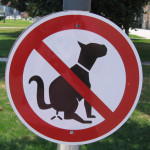 So to simplify, if your dog goes number two on public property, private property (that is not yours), or common grounds that you share with your neighbor (whether in a home or apartment setting), it is your responsibility to immediately collect the fecal matter and place in a bag or container, which is then to be removed from that area.
So to simplify, if your dog goes number two on public property, private property (that is not yours), or common grounds that you share with your neighbor (whether in a home or apartment setting), it is your responsibility to immediately collect the fecal matter and place in a bag or container, which is then to be removed from that area.
Whether in a dog park, human park, sidewalk, neighbor’s yard, or that little path you found behind your house that no one else seems to use, you need to promptly pick it up, hence the tossing of the poo is not allowed in any of these places.
Still not convinced of putting a halt to the toss? You’re probably thinking, Well, where I toss the poop is still on my property, so I should be fine. Well let’s look at that ordinance a little further.
Section 3-9 – Public Nuisance, Item #5: “Maintaining animals in an unsanitary environment which results in unsightly or offensive animal waste, litter, or odor which would disturb a reasonable person on adjoining property;”
…which translates to – poop must be out of sight, and out of smell
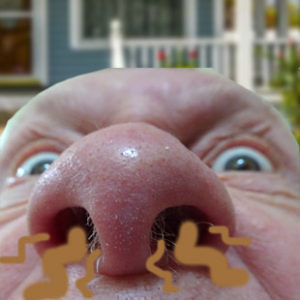 What many don’t realize is that the average dog discards about ¾ pound per day adding up to 275 pounds of waste per year. Each set of droppings can take almost a year to break down and that little bit of poo you’re throwing over can quickly add up to quite a sizable amount. With humans being able to smell over one trillion odors, this smelly pile you’ve slowly built up is surely going to disturb you and your neighbors.
What many don’t realize is that the average dog discards about ¾ pound per day adding up to 275 pounds of waste per year. Each set of droppings can take almost a year to break down and that little bit of poo you’re throwing over can quickly add up to quite a sizable amount. With humans being able to smell over one trillion odors, this smelly pile you’ve slowly built up is surely going to disturb you and your neighbors.
Section 3-9 – Public Nuisance, Item #6: “The keeping, possessing, harboring or feeding of animals; wild, feral or domesticated, which threaten the public health, safety, and welfare of the community.”
Here’s where some information about the hazardous nature of dog waste comes into play…
Just one gram of dog poop can contain 23 million fecal bacteria and are common carriers of nasty things like whipworms, hookworms, roundworms, tapeworms, parvovirus, giardia, salmonella, and E. coli. Not only that, but dog feces are conducive to attracting flies, rodents, and other pests that can carry even more terrifying pathogens. The eggs of these parasites can linger in the soil for years. Anyone who comes into contact with that soil – be it through gardening, playing sports, or even just walking barefoot – will run the risk of being exposed.
Just because you’ve tossed it away from your yard, doesn’t mean it’s going to stay there.
Although needing further testing in more locations, a recent 2011 study conducted by the University of Colorado Boulder found significant quantities of fecal bacteria in the atmosphere across several mid-western cities, closely resembling bacteria found in dog waste.
This suggests that bacteria from dog waste left unattended is being blown into the air that we breathe. So even though you might have removed the waste on the ground near your house, the bacteria can still easily be in the air hovering around your home.
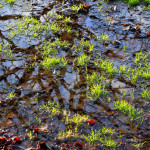 Hoping the rain will drown the parasites and bacteria? Quite the contrary – rain or any sort of water source will separate the larvae from the stool and then act as a mode of transportation to move the eggs across the wet grass, and possibly back onto your property. Many times the larvae will congregate into little puddles on your lawn, making it a danger for your dog to drink out of or step in it.
Hoping the rain will drown the parasites and bacteria? Quite the contrary – rain or any sort of water source will separate the larvae from the stool and then act as a mode of transportation to move the eggs across the wet grass, and possibly back onto your property. Many times the larvae will congregate into little puddles on your lawn, making it a danger for your dog to drink out of or step in it.
Remember we mentioned how flies and rodents are attracted to dog poop? Well they can also serve as transport hosts once afflicted, leaving your family and pets vulnerable to infection through bug bites and unintentional interactions with minuscule rat droppings.
Not only should you be concerned about reinfecting your lawn, but your neighbor’s yard as well. Even worse, live near water? The parasitic eggs can be blown into your local ponds and rivers.
The EPA (Environmental Protection Agency) explains that when pet waste enters a body of water and begins to break down, it will actually create nutrients for weeds and algae. These underwater plants then become overgrown, limiting the amount of light that can pass through the water’s surface. As a result, oxygen levels in the water decrease, ammonia levels increase, and the fish that reside there can be asphyxiated. Furthermore, the unhealthy water can become a risk for humans and wildlife alike.
What’s so bad about these parasitic eggs?
Although your dog may not be showing symptoms, his intestines can be infected at any given time and can be hard to detect without veterinary intervention. So unless you are thoroughly inspecting your dog’s poop every day with a microscope, you wouldn’t know that parasitic eggs are being shed through his feces, infecting your soil.
Let’s talk worms
Roundworms, hookworms, and whipworms can be a common bug that can enter your canine’s body from a contaminated source found outdoors.
Hookworms are tiny nematodes that will live in the small intestine of their host and are a danger to dogs, especially puppies. They feed on blood and can potentially cause anemia. Even more alarming, these worms are zoonotic, meaning they can be transferred from animal to human. As careful as you may try to be when outside, they’re hard to avoid as this unseeable bacterium can enter the body just by passing through one’s skin.
Whipworms can be even worse as they can be one of the hardest parasites to get rid of once their eggs invade your yard. It could potentially take several months to rid your dog of a whipworm infection with multiple deworming treatments, as the larvae can live up to 5 years in which it will infect what it can find including soil, water, skin and food! Whipworms can produce around 2,000 eggs per day and survive in your yard for years withstanding both the hottest and coldest temperatures all year round due to their thick interior walls. If you don’t properly dispose of your dog’s tainted waste in a fair amount of time, he will likely reinfect himself.
So what should you be doing?
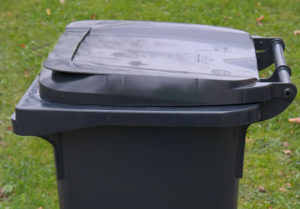 First off, the number one thing NOT to do is to attempt to compost dog waste without proper equipment and knowledge. Although dog manure contains organic nutrients useful to plants, it is unsafe to compost just using your own dog’s output. Due to the lack of material and volume, the temperature inside a residential compost bin will not get hot enough to kill off all of the pathogens. Unless your town offers a composting service for you, the easiest thing is to scoop the poo on a frequent basis, bag it, and then place in the trash can. Not only will it truly be out of sight and smell, but bagging it will smother the eggs and eliminate any risk of exposure.
First off, the number one thing NOT to do is to attempt to compost dog waste without proper equipment and knowledge. Although dog manure contains organic nutrients useful to plants, it is unsafe to compost just using your own dog’s output. Due to the lack of material and volume, the temperature inside a residential compost bin will not get hot enough to kill off all of the pathogens. Unless your town offers a composting service for you, the easiest thing is to scoop the poo on a frequent basis, bag it, and then place in the trash can. Not only will it truly be out of sight and smell, but bagging it will smother the eggs and eliminate any risk of exposure.
“The reluctance of many residents to handle dog waste is the biggest limitation to controlling pet waste.”
– EPA
“The cycle begins and ends with a good scoop.”
– Pet Poo Skiddoo


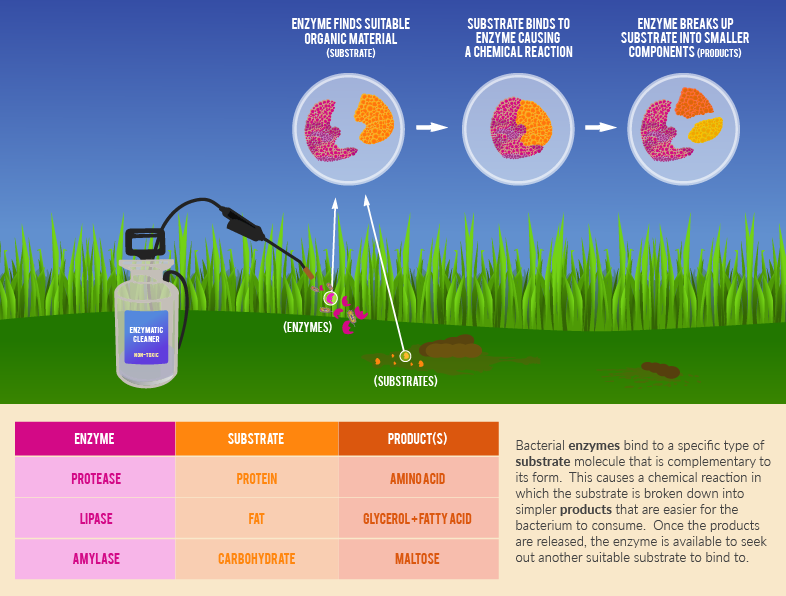 How Enzymatic Cleaners Can Deodorize a Yard With Dogs
How Enzymatic Cleaners Can Deodorize a Yard With Dogs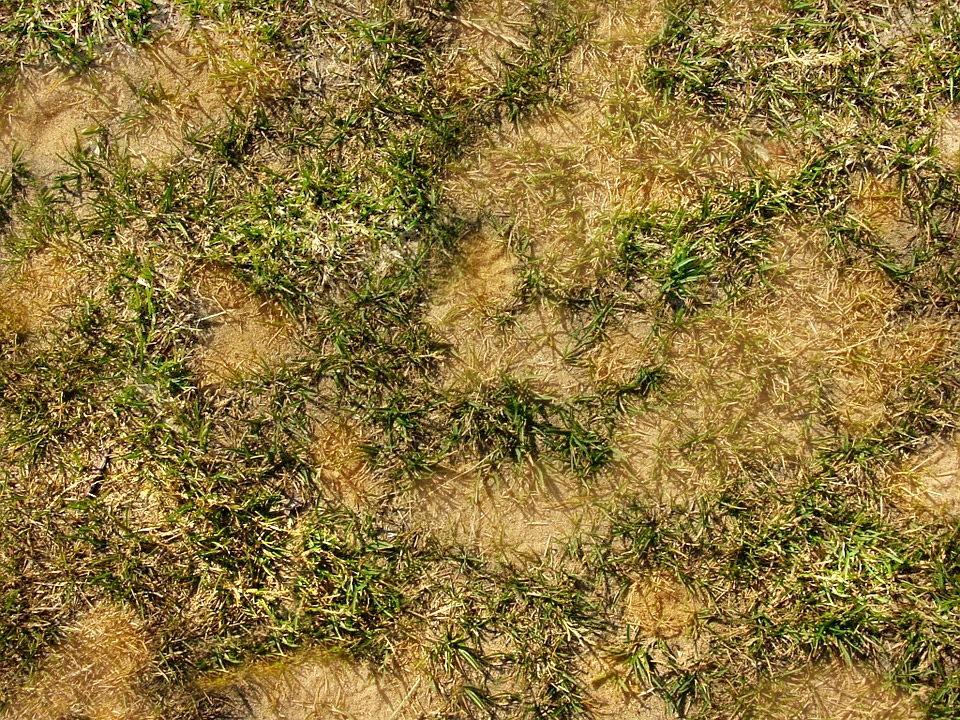 5 Steps to Maintain a Healthy Lawn That Can Withstand Your Dog’s Urine
5 Steps to Maintain a Healthy Lawn That Can Withstand Your Dog’s Urine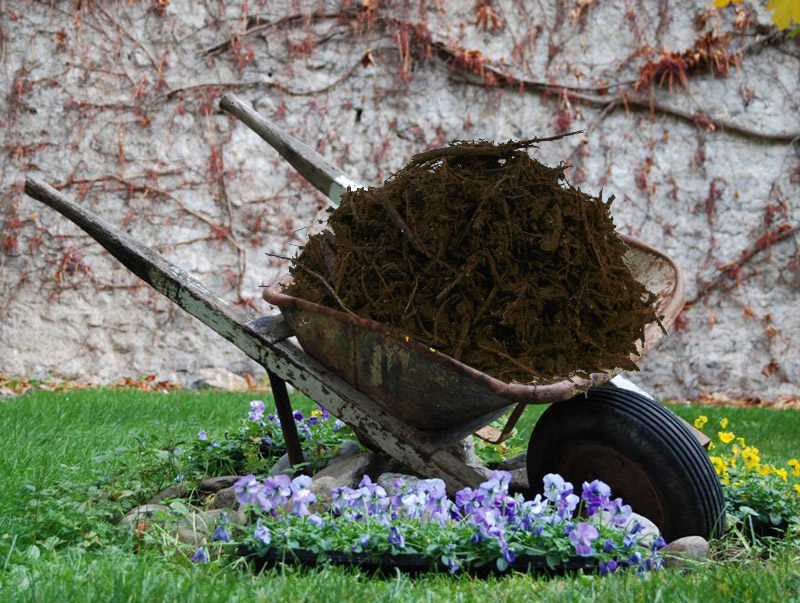 Is there a perfect type of mulch for a dog?
Is there a perfect type of mulch for a dog?